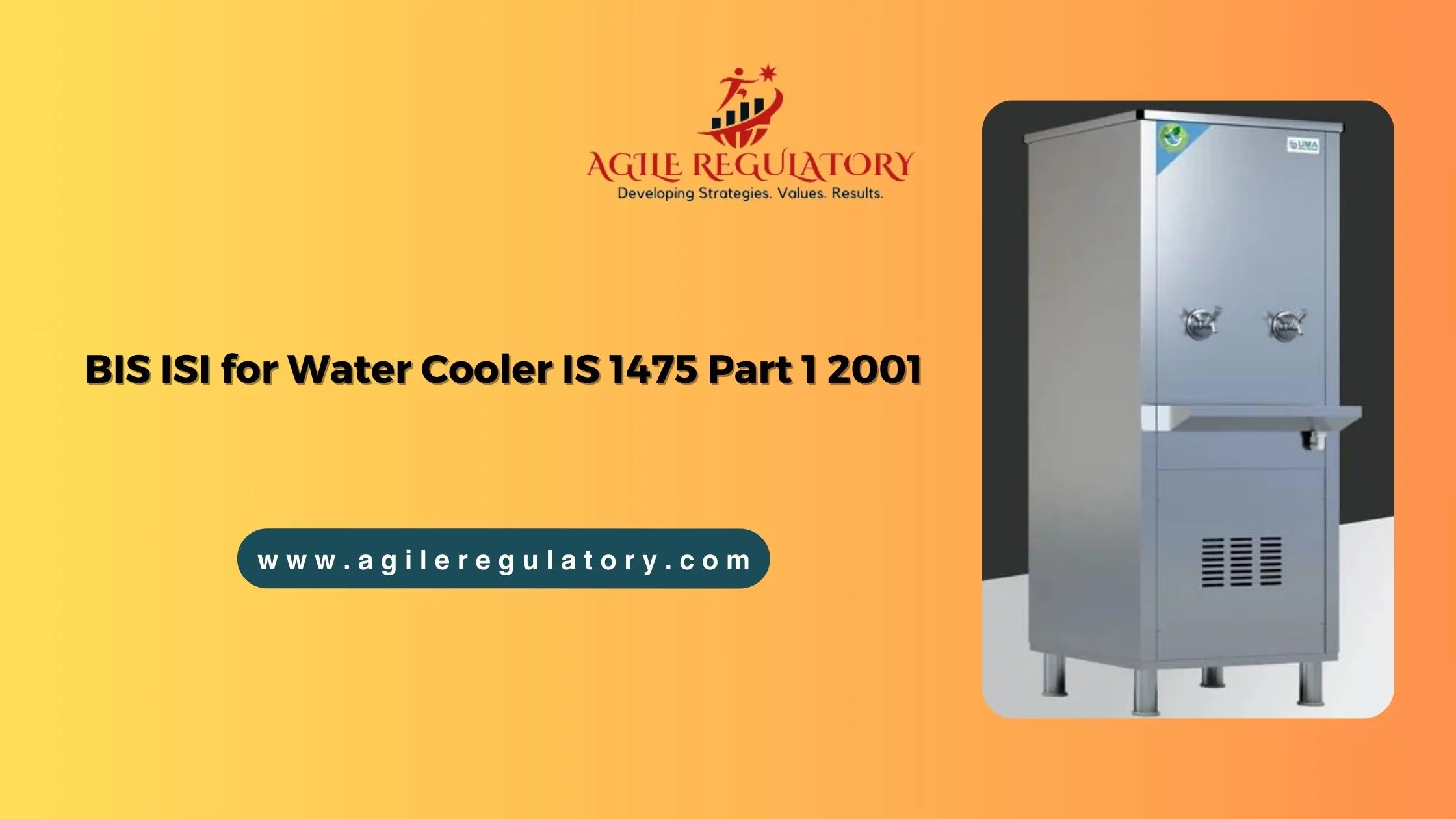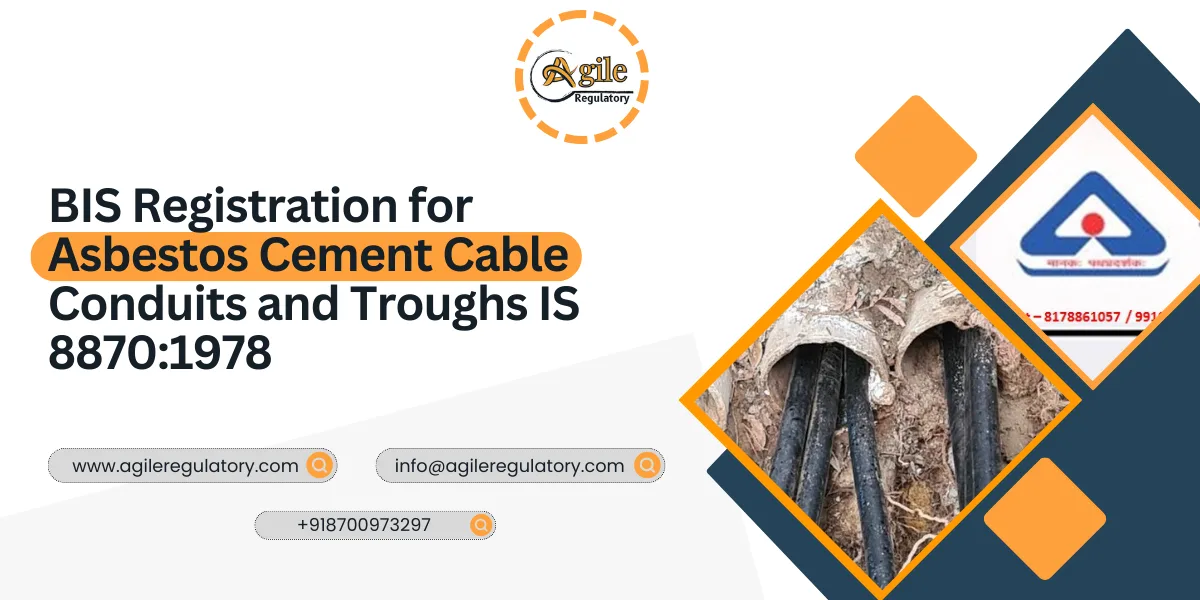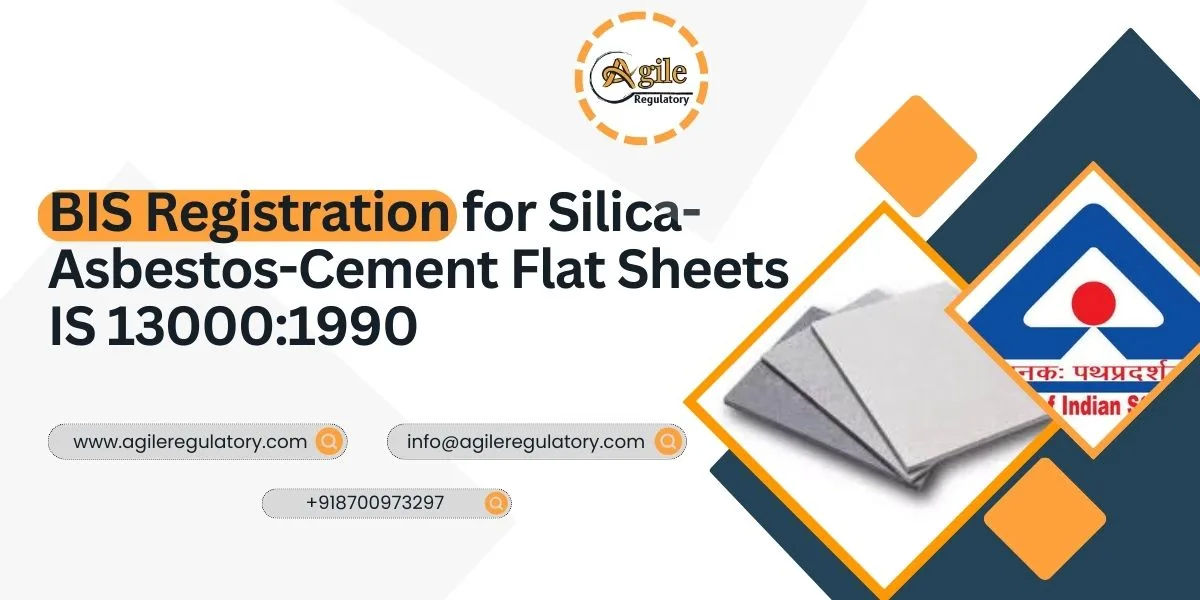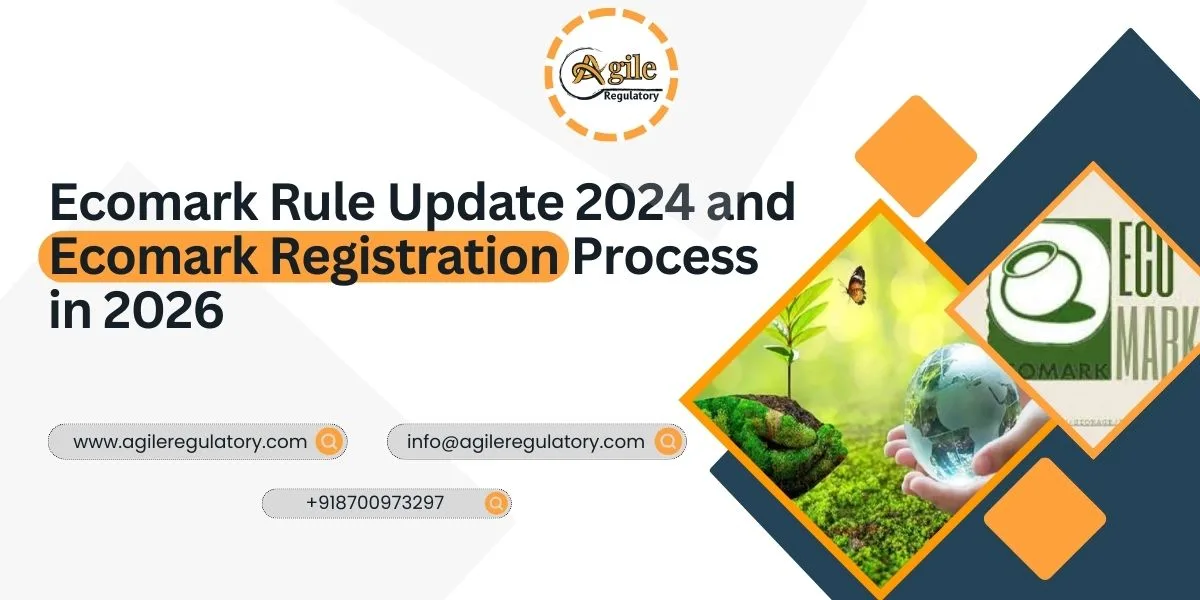
Get Instant Solution By an Expert Advisor
(4.8)


The Bureau of Indian Standards (BIS) is essential in guaranteeing the safety and quality of items, especially self-contained drinking water coolers, in a nation like India where temperatures can rise sharply and the necessity for clean drinking water is critical. IS 1475 Part 1 2001 is one such standard that is essential to this process, and getting BIS certification for conformity is an important step for both producers and consumers.
IS 1475-1 (2001) sets the benchmark for self-contained drinking water coolers in India. In order to trust that customers get clean drinkable water, a water cooler must comply with the standards and specifications mentioned in IS 1475-1 (2001). This standard includes a wide variety of factors, from performance and testing to design and construction, guaranteeing that the coolers meet the highest quality requirements.
BIS certification process for Water coolers is comprehensive and thorough. Manufacturers who wish to be certified must follow stringent requirements.
The manufacturer initiates the process by submitting an application to the Bureau of Indian Standards (BIS) for the certification of their water cooler.
BIS checks the uploaded documents to make sure all relevant data is included. It includes product details, manufacturing process testing facilities, etc.
In order to determine if the production plant satisfies requirements and has the infrastructure required to produce high-quality water coolers, BIS may physically inspect it.
In labs recognized by BIS, water cooler samples are gathered for testing purposes. The testing process evaluates various parameters, including design, construction, performance, safety, and material quality, as per the specifications outlined in IS 1475-1 (2001).
BIS assesses whether the water coolers meet the specified standards based on the results of the sample testing. The product must comply with all relevant requirements to receive BIS.
Upon successful completion of the assessment, BIS grants the certification to the manufacturer. The certificate confirms that the water cooler complies with the specified Indian Standard (IS) and is eligible for the BIS mark.
BIS may conduct periodic surveillance audits to ensure that the certified products continue to meet the standards over time. This helps maintain the integrity of the certification process.
BIS certification is valid for a period, not a lifetime. Manufacturers need to renew their certification to continue displaying the BIS mark on their water coolers. This involves a reassessment of the product's compliance.
The design and construction of self-contained drinking water coolers must comply with specific guidelines outlined in IS 1475-1 (2001). This includes the materials used, the cooling mechanism, and features like faucets and dispensing units.
The cooling efficiency, temperature control, and energy consumption of the water coolers are closely scrutinized. To receive BIS certification manufacturers must guarantee that their goods fulfill the requirements
The safe and non-toxic components utilized in the construction of these coolers are required. This will ensure that the water the end user receives is not only cold but also free of dangerous materials by preventing any contamination of the water kept in the coolers.
Strict testing protocols are utilized to confirm that the self-contained drinking water coolers fulfill the requirements outlined in IS 1475-1 (2001). The manufacturers must provide proof of conformity that indicates their dedication to providing high-quality and good products to the market.
BIS certification instills confidence in consumers, assuring them that the self-contained drinking water coolers they purchase adhere to the highest quality and safety standards.
BIS certification is often a prerequisite for market access. Many retailers and government procurement processes require products to be BIS-certified, making it essential for manufacturers to obtain this certification to tap into a broader market.
BIS certification is a legal requirement for certain products. Manufacturers who fail to comply with these standards may face legal consequences and market exclusion.
The BIS certification for Water coolers is one of the most crucial steps in ensuring that safe and excellent self-contained drinking water coolers are accessible in India. Manufacturers need to put achieving these criteria first in order to gain the trust of customers and improve public health as consumers grow increasingly picky about the items they buy. BIS certification is advantageous for producers, but it's even more crucial for end users whose daily hydration demands are met by these drinking water coolers since it protects their health and satisfaction.
#checkout a detailed process: bis registration

 Vanshika Mathur
Vanshika Mathur
27 Feb, 2026

 Divya Saxena
Divya Saxena
27 Feb, 2026

 Nishi Chawla
Nishi Chawla
27 Feb, 2026

 Nishi Chawla
Nishi Chawla
27 Feb, 2026

 Vanshika Mathur
Vanshika Mathur
26 Feb, 2026

Get Instant Solution By an Expert Advisor
(4.8)
We simplify compliance through a proven 4-step process: Consultation, Documentation, Submission, and certification. From understanding requirements to getting final approvals, we deliver a smooth, timely, and fully compliant journey for your business.
What our customer says about us
Fantastic support from the team. Their expertise transformed our approach, driving remarkable outcomes. A must-have partner for businesses seeking effective consulting solutions. Highly recommended.

KTPL Instruments
Agile Regualtory delivers exceptional solutions. Their insightful guidance streamlined our processes and boosted profitability. Highly recommended for businesses seeking expert consulting services to thrive.

Justrack IOT
Impressed by Agile Regulatory's expertise. Their strategic insights and practical solutions have elevated our business operations. A reliable partner for effective consulting services. Highly recommended for growth-focused businesses.

Coaire Compressor
Extraordinary consulting services. Their insightful solutions and dedicated team reshaped our business, driving remarkable improvements. Highly recommend it for transformative results.

Easy Polymer
Incredible experience with Agile Regulatory. Their innovative strategies and expert advice revitalized our business model, resulting in impressive growth. Highly recommend their exceptional consulting services.

Tarus International
Top-tier consulting! offered strategic solutions that revolutionized our approach. Their deep expertise and personalized guidance made a significant impact on our success. Highly recommend their services.

Anchor Weighing
Agile Regulatory exceeded expectations! Their tailored solutions, expertise, and proactive approach led to remarkable results. Highly recommend for businesses seeking impactful and strategic guidance.

AM Capacitor
Outstanding service! delivered targeted solutions with professionalism and expertise. Their insights elevated our business strategies, resulting in noticeable growth. Highly recommended for exceptional consultation.

Imaxx Pro Aquistic
Leave a Reply
Your email address will not be published. Required fields are marked *